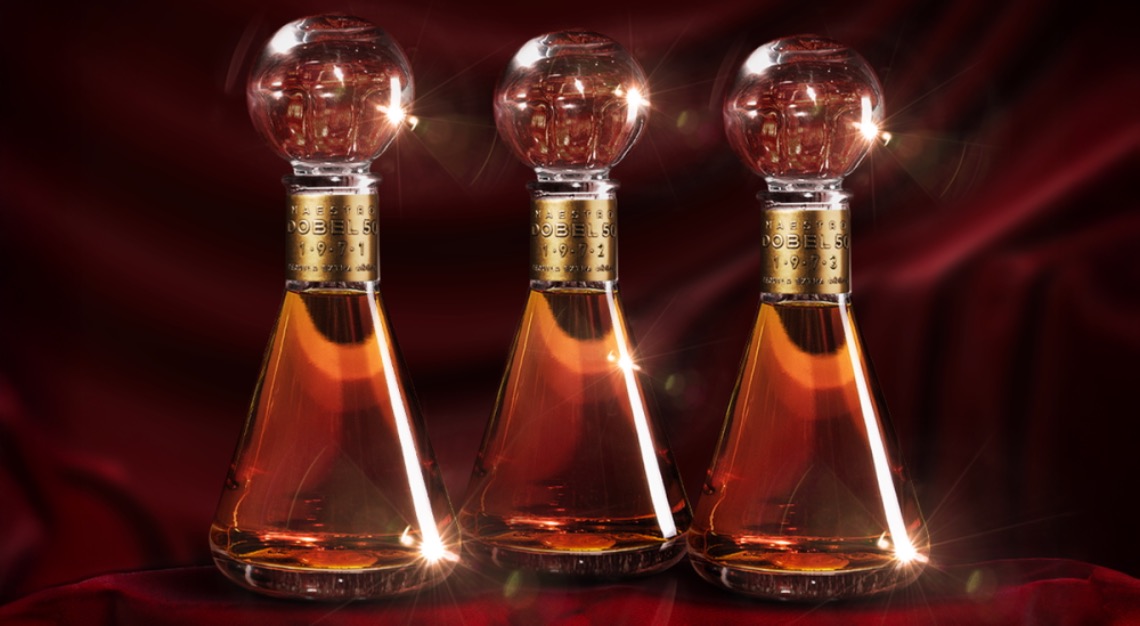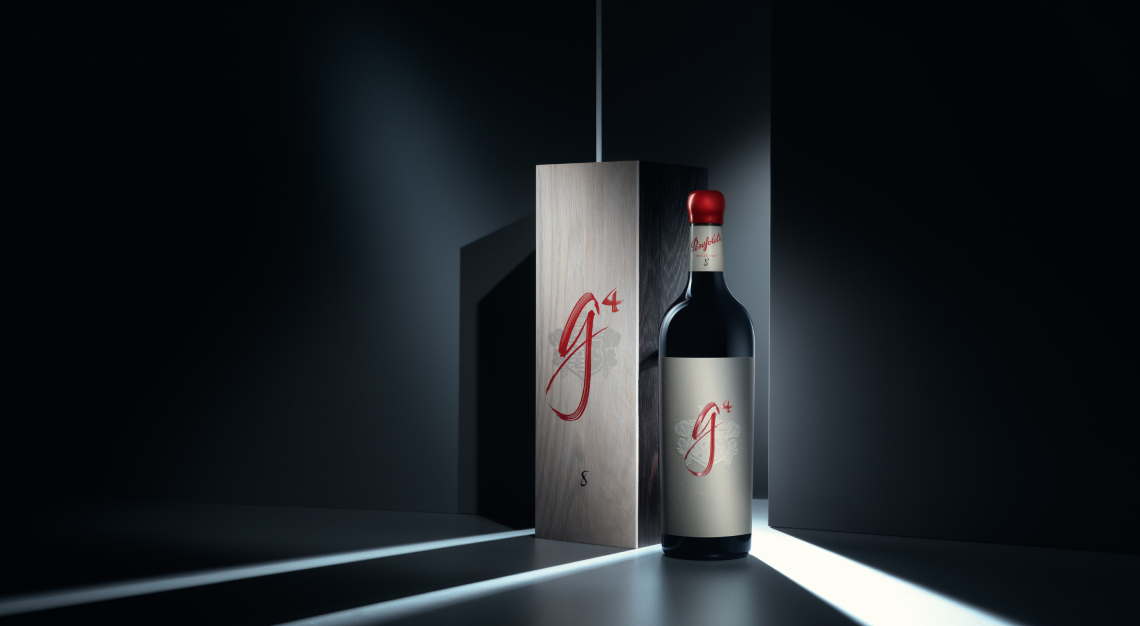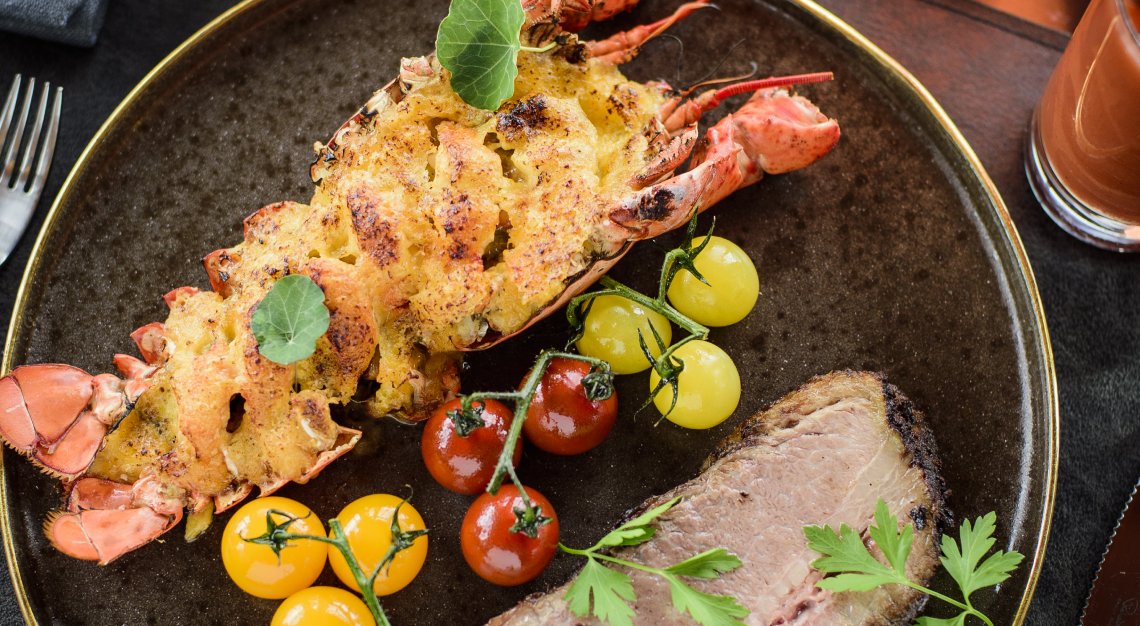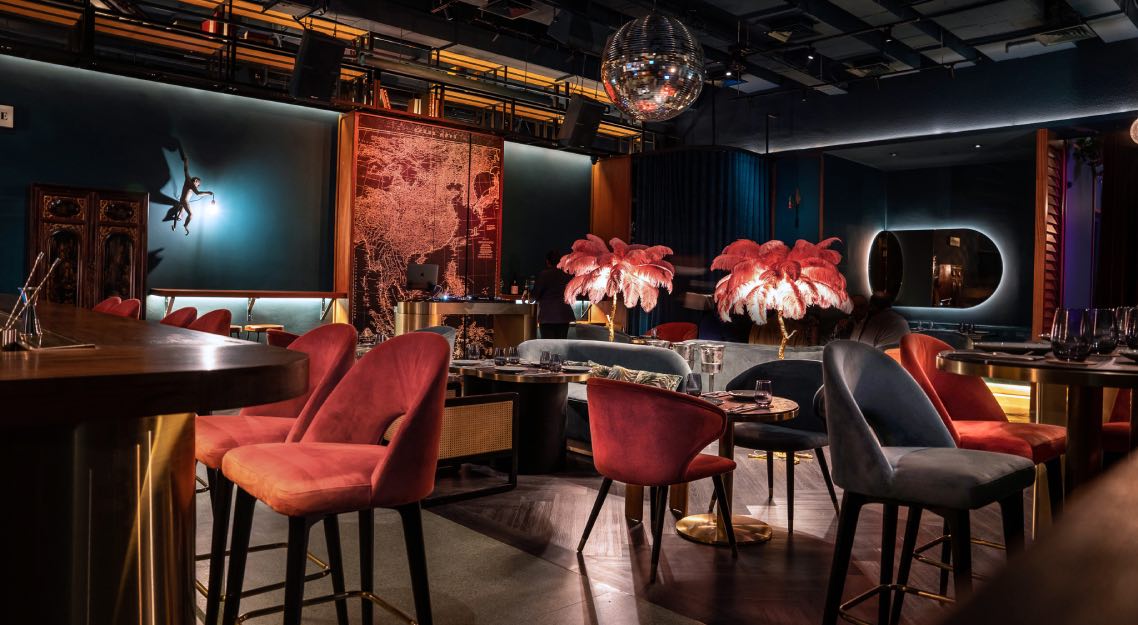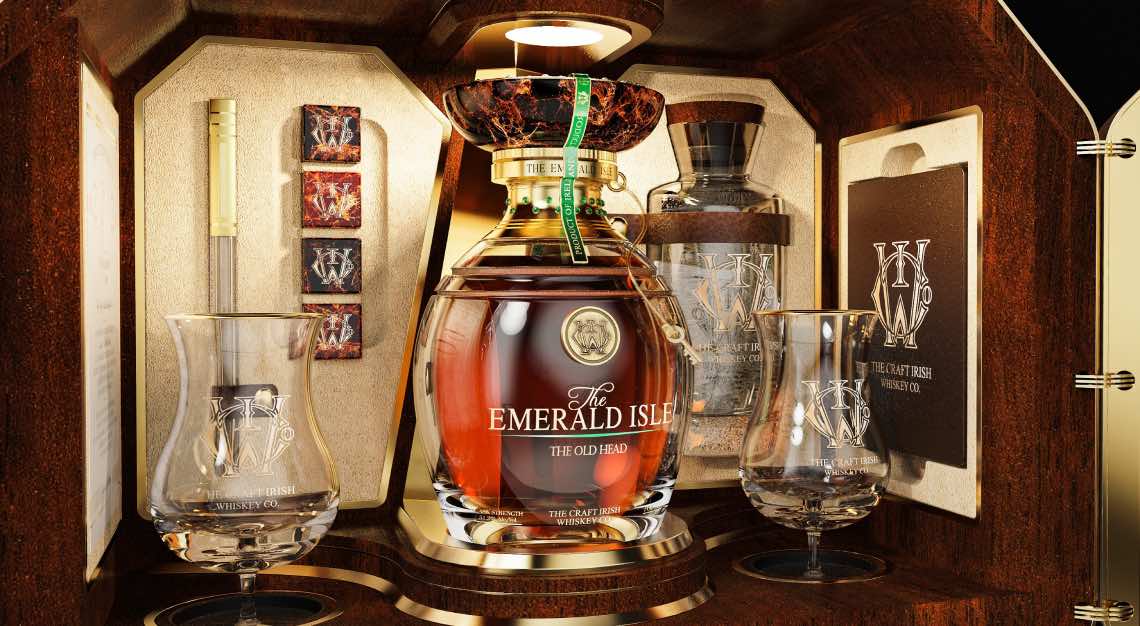These tequilas were aged in shochu, sherry, and Bushmills barrels
How much are you willing to spend on a bottle of tequila? Maestro Dobel hopes it’s a lot—US$950, to be exact. But that’s relegated to a special new release, a trio of tequilas that are part of the brand’s Dobel 50 Anniversary Series. This installment is unique because each expression is finished or partially aged in a type of barrel that is not commonly used tequila, and we got a preview of all three.
The new tequilas—Dobel 50 1971, 1972, and 1973—are all extra añejo expressions, meaning they have been aged for more than three years in wood. Dobel launched the series launched in 2022 to celebrate founder Juan Domingo Beckmann’s birthday with 1967, a tequila finished in sherry casks. Then last spring three more bottles joined the lineup, each finished in a type of wood that was a first for the brand including Armagnac, sauternes, and amarone wine.
This month finds Dobel, which is owned by the Beckmann family (who also controls Jose Cuervo) trying out some new and very unusual types of maturation. According to the brand, the tequila was made from agave harvested at about seven years old, which was then cooked in brick ovens before being distilled and aged for a minimum of three years. Dobel 1971 was initially aged in French and Eastern European oak before being finished in shochu barrels, a first for the brand and perhaps a first in tequila. If you’re unfamiliar, shochu is a low-ABV spirit made from rice, grain, or sweet potato that is popular in Japan and is sometimes aged in barrels. That secondary maturation has given the tequila notes of honey, vanilla, and toasted nuts.
As for Dobel 1972, it’s a blend of tequilas matured in toasted American oak barrels, charred new American oak barrels, and Bushmills single malt Irish whiskey casks (Bushmills is also owned by parent company Proximo Spirits), giving it notes of fruit, dark chocolate, and raisin on the palate. Lastly, Dobel 1973 was aged in aged in toasted American oak barrels and Pedro Ximenez sherry casks, a sweet style of this fortified wine, giving it notes of dried fruit, spice, and ginger.
Don’t expect your classic, well-aged, extra añejo tequila here, because these expressions have been utterly transformed by extended maturation and finishing in these different types of casks. But that is exactly the point: to explore how ultra-aged tequilas shift their character when matched with a specific type of wood. As mentioned before, these are ultra-premium releases that are retailing for US$950 per bottle, and you can find them all available to purchase now from ReserveBar, along with previous releases in the series.
This story was first published on Robb Report USA. Featured photo by Maestro Dobel
